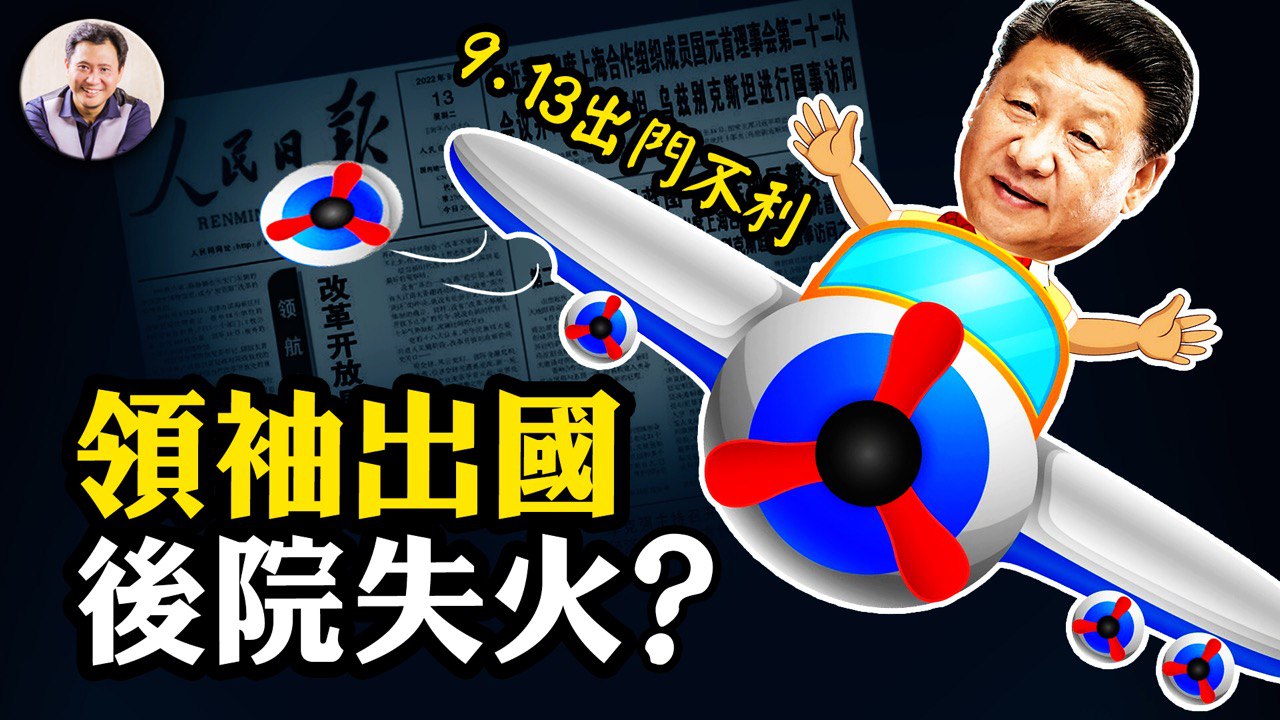After 965 days of silence, Xi Jinping visited on “9.13”, was someone framed or arranged by fate?
“9.13” is an extremely important day for the CCP.
Mao Zedong, who has “long life without borders”, and Lin Biao, who is “forever healthy”, seem to be the most iron political allies from the establishment of the Communist Party of China to the climax of the “Cultural Revolution”. Lin Biao once led the Fourth Field Army, and performed the American equipment that the United States gave to the Soviet Union under the Lend-Lease Act and was handed over to the CCP by the Soviet Union. He performed a full set of military equipment of the 700,000 Japanese Kwantung Army. Cross the river and follow the Central Plains all the way to Guangdong and Hainan. One-half of China’s prosperous areas became Lin Biao’s sphere of influence. For the top CCP leaders, Lin Biao’s support for Mao Zedong every time at a critical moment means Mao Zedong’s firm control over the barrel of the gun, and even the old generals who used to hold the military power are silent; for the Chinese people, the CCP is a monolith. A “united great” party without any dissenting voices, opposing forces.
But “9.13” changed all that. Lin Biao escaped and fell to his death on the Werhan grassland in Mongolia, and the CCP did not announce some of the facts until a year later.
This incident has imprinted the concept of “military coup” in the hearts of everyone who is dissatisfied with the supreme power; even the common people have realized for the first time that the political struggle at the top of the CCP is so thrilling and unexpected.
For the historical process of the CCP, the pseudo-democratic process of the successor came to an end, and Mao Zedong began to look for the supreme leader among his relatives, which also ushered in the doom of the “Gang of Four” and others. While the “Cultural Revolution” political movement had to be preserved, Mao Zedong had to accept the olive branch handed over by his own enemy, “U.S. imperialism,” in order to get rid of the ruling crisis, the diplomatic crisis, and the economic crisis as soon as possible.
Of course there is one more point, “9.13” destroyed Mao Zedong’s spirit and body, and hastened the end of an era of tyrants.
So “September 13” was an inauspicious day for dictators and the centralized system. The “forever healthy” leader’s plane fell and fell to the ground. There was also a hidden coup d’état and a climax of intra-party struggle.
However, Xi Jinping, who has not visited abroad for 965 days, chose this bad day for his first visit after the outbreak of the CCP virus (new coronavirus). As far as I know, Xi Jinping, like many leaders in the party, wants to burn down other people’s churches and ask monks to sing “Dear mother, the party”, but he himself believes in mysterious power very much. Is he really completely ignorant of the party’s history, or did someone deliberately design it for him later? According to Xinhua News Agency, Xi Jinping left Beijing for a visit on the 14th local time and officially started his visit to Uzbekistan and Kazakhstan in Central Asia, which happened to be 9.13 North American time.
The common ground between personal ambition and the interests of the CCP’s governance contributed to this Xi’s visit
According to general logic, Xi Jinping dared to choose to visit during the most critical period of the 20th National Congress of power struggle, which shows that his power has been stabilized and he has the chance to win. But this matter is not so simple, I will try to analyze it with you in detail.
The Shanghai Economic Cooperation Organization was initiated and established by the CCP. Although it is not a military and political group, the SCO first emphasizes the pursuit of a new security concept in defense and security. Therefore, it is the Central Asian regional security group headed by China and Russia, and it is the balancing force of NATO in the East in the future.
The original SCO was relatively simple. China provided money, Russia provided guns, the CCP’s economic power, and Russia’s military power. Except for China and Russia, the rest were the Central Asian republics of the former Soviet Union. But now, especially with the escalation of the conflict between China and the United States, the outbreak of the Russian-Ukrainian war, and geopolitics becoming more and more important, Afghanistan, India, Pakistan and even Iran have all announced their participation. Therefore, this alliance has become a part of the CCP under the common boycott of Western democracies. Group warming organization. So the CCP needs the organization’s presence in the geopolitical and international camps more than ever.
Especially in Kazakhstan, where Xi Jinping is on a state visit this time, the CCP desperately needs his precious metals, oil pipelines and energy supplies. The largest “Vasilikovsky” gold mine in Kazakhstan is being hunted by Chinese companies, including the Silk Road Fund and Zijin Group, which are buying gold here. As the most important rare and precious metal in the high-tech confrontation between China and the United States, gold is a resource that major countries have priority over. About fifteen years ago, China’s demand for precious metals accounted for only 9% of the world‘s, and it was not a big player in the gold market. Today, the Chinese are the main retail consumers of gold products and gold bars, and the number of gold specialty stores has also increased significantly.
In the past few days, the devaluation of the renminbi is close to breaking the seven-point mark, and the forecast for global economic growth has been lowered, all of which have increased people’s interest in gold’s safe-haven function. Unlike China’s national gold strategic reserve, the gold investment in the American society is scattered among the private sector. Everyone knows the truth of “gold in troubled times”. Many Chinese friends in the United States asked me how to find safe gold investment. The American Hartford Gold I know is the highest rated company in the US with an A+ rating on the BBB (Better Business Bureau) and thousands of satisfied customers. With just a brief phone call, they can deliver gold and silver to your doorstep, or to your IRA or 401K account. However, this company only supports purchases within the United States, does not support international shipping, and the service is all in English. You can click the QR code below the program, or call 866-932-5771, or text “JIANG” (Jiangfeng’s Pinyin alphabet) to 998899, and you will enter the company’s service page. If you call them now, they’ll send you up to $2,500 in free silver on your first qualifying order.
After more than 900 days of silence, Xi Jinping chose Kazakhstan as the first stop to go abroad. In addition to gold and oil, China must continue to play a leading role in the SCO. Faced with the alliance of democratic countries, the Beijing authorities, who are unwilling to be captured, are currently taking measures to strengthen the Shanghai Cooperation Organization, which they created by themselves, in an attempt to build a situation of group confrontation and get rid of their isolated status.
The U.S. abandonment of Afghanistan and the failure of the U.S. left-wing regime in Middle East foreign and oil policy have given Xi and Putin the opportunity to co-opt an anti-U.S. alliance. It can be said that this year’s SCO meeting will give many dictators and authoritarian countries a good opportunity to take family photos. At this point, Xi Jinping’s ambitions have a common ground with the CCP’s governing interests, thus facilitating the trip.
Xi’s visit does not mean status stability and absolute political security
But Xi Jinping’s visit does not mean that his political status has been greatly stabilized, nor does it mean that he has absolute political security at the 20th National Congress or later.
First of all, as one of the leaders of the 20 countries, Xi Jinping, the so-called leader of the great powers, appeared belatedly after the leaders of other countries had already carried out foreign affairs activities one after another. Even in a state of war, Putin, who has been surrounded and sanctioned by many Western countries, has already launched multi-faceted diplomacy. His age, physical condition, and passive diplomatic isolation are worse than Xi Jinping. His only unique feature is that no country in the world today has experienced such absurd anti-science and anti-humanity like China under Xi Jinping’s leadership. The anti-epidemic closure of the city, no national leader has experienced a high-pressure and dangerous political situation of high-level political struggle and general social rebound. Therefore, the reason why Xi Jinping has been slower to show up or go abroad than any other major country leader in the world is the consideration of political security.
Secondly, the final arrangement of this visit cannot prove that he has finally won this round of political victory and successfully won the next re-election. Quite simply, if everything goes well, the Ministry of Foreign Affairs will not be delayed in announcing the schedule of the visit. You must know that this visit not only includes the SCO meeting, but also the state visit of the two countries in Central Asia, involving many foreign affairs arrangements of the other side. Just a few days’ notice in advance is very contrary to the normalcy of foreign affairs. Food, accommodation, transportation, security, and meetings of national leaders all require preparations for a long time in advance. You want to ask, have you told the other party’s schedule in advance for the other party to make arrangements, but it is not public? No, as long as the schedule is informed, there will be no problem of confidentiality. Various domestic political forces have their own eyes and people overseas. The only reason for non-disclosure is uncertainty within the party.
The third point is that on September 13, when Xi Jinping left Beijing, the People’s Daily published a heavy report, “Reform and opening up is a key move to determine the fate of contemporary China.”
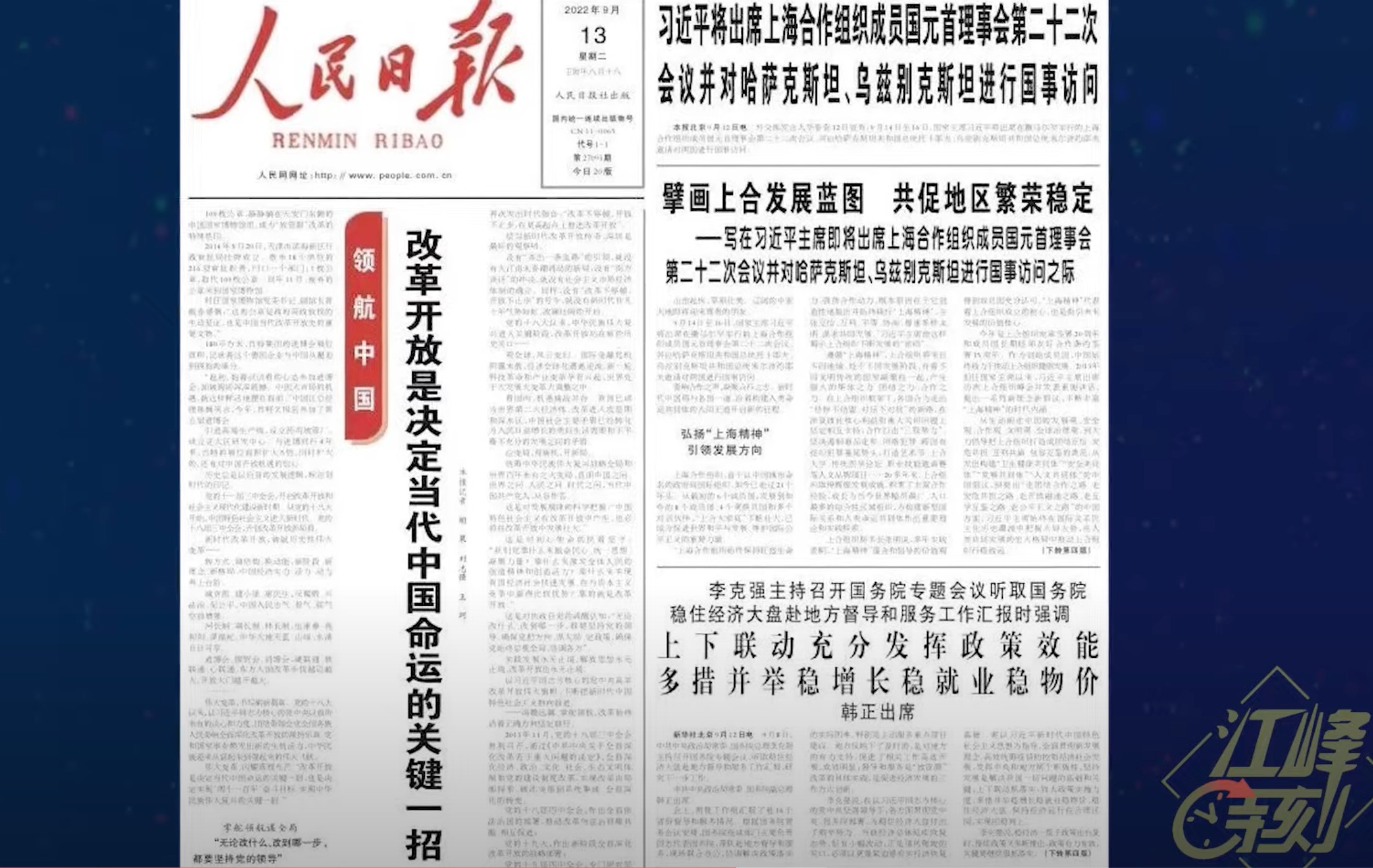
This is so much fun! Perhaps many friends have read it and said that this article still emphasizes the core of Xi Jinping, and put the 19th and 20th National Congresses into the basket of insisting on “reform and opening up”. Therefore, there is no need to over-interpret it, it is still a propaganda material in Xi Jinping’s home. But in fact, there are more angles to interpret.
More in-depth interpretation of the article on Renri 9.13
Let us re-read the meaning brought by the article of People’s Daily 9.13 from some historical precipitation.
First of all, insisting on “reform and opening up” is consistent with Li Keqiang’s recent statement in Shenzhen that “the Yangtze and Yellow Rivers will not flow backwards” and that “reform and opening up is to cut a bloody road”. To be more precise, it is the focus of the conflict between the economic work-centered road and the political task of “clearing the seal”. Because it is impossible to restore the economy and normal social life, the contradiction in the policy has directly reflected the complete difference between the central and high-level officials. According to the discourse system of the CCP, it is the “line struggle”.
In other words, no matter how this report takes into account the core expression of Xi Jinping, the central meaning is clear in the title, that is to adhere to the economic line of “reform and opening up” and abandon the political line of “clearing”, which means that Xi Jinping’s leadership Authority challenge.
Secondly, in the layout of the party newspaper, this report ranks on the front page, and the title is red. However, the front-page report on Xi Jinping’s visit to Central Asia was listed at the top of the page without red flags. It is clear at a glance who is heavier and who is less.
Third, the title of this report is “reform and opening up”, which is a key move. It is the same as the great article “reform and opening up is a great awakening” by Qu Qingshan, director of the Party History Research Office of the People’s Daily, which was also published in the People’s Daily at the end of last year. rut. That article focused on preaching Deng Xiaoping and did not mention Xi Jinping, which obviously ran counter to Xi Jinping’s third historical resolution that downplayed the merits of “reform and opening up” and downplayed the previous leaders of the CCP.
Fourth, in the history of the communist movement, it is common for leaders to go out for vacations and state visits and be removed from power when they come back. If we look at the leaders in the history of the CCP who were overthrown because of going abroad, this one will be very interesting. Inspired.
Zhao Ziyang did not listen to his advice in the early days of the 1989 student protests. At that time, everyone around him told him that the domestic situation was so tense that it was burning his eyebrows, and he had to deal with students’ problems first. However, Zhao Ziyang insisted on visiting North Korea as scheduled. As a result, the old people held meetings in series, and Li Peng took away the dominance of the overall situation. Soon after returning to China, Zhao Ziyang was forced to step down.
In May 1978, Hua Guofeng, who also has the title of “wise leader”, visited North Korea.
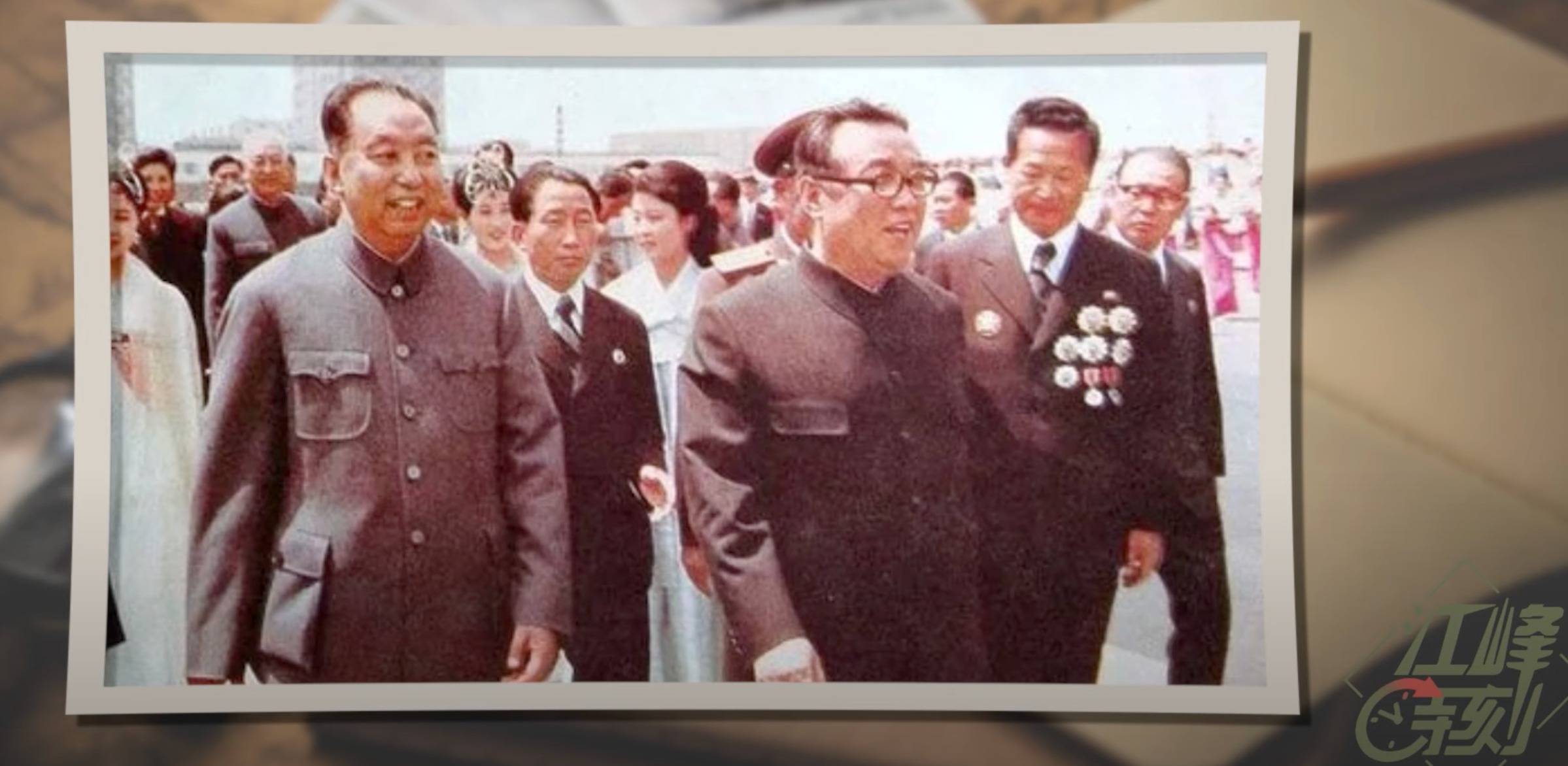
Hua Guofeng left on May 8, and on May 11, under the arrangement of Deng Xiaoping, the comment article “Practice is the only criterion for testing truth” reviewed and approved by Hu Yaobang, then head of the Organization Department of the CPC Central Committee, was published in Guangming Daily, which directly triggered criticism. Hua Guofeng’s political line, the so-called “two whatevers” question.
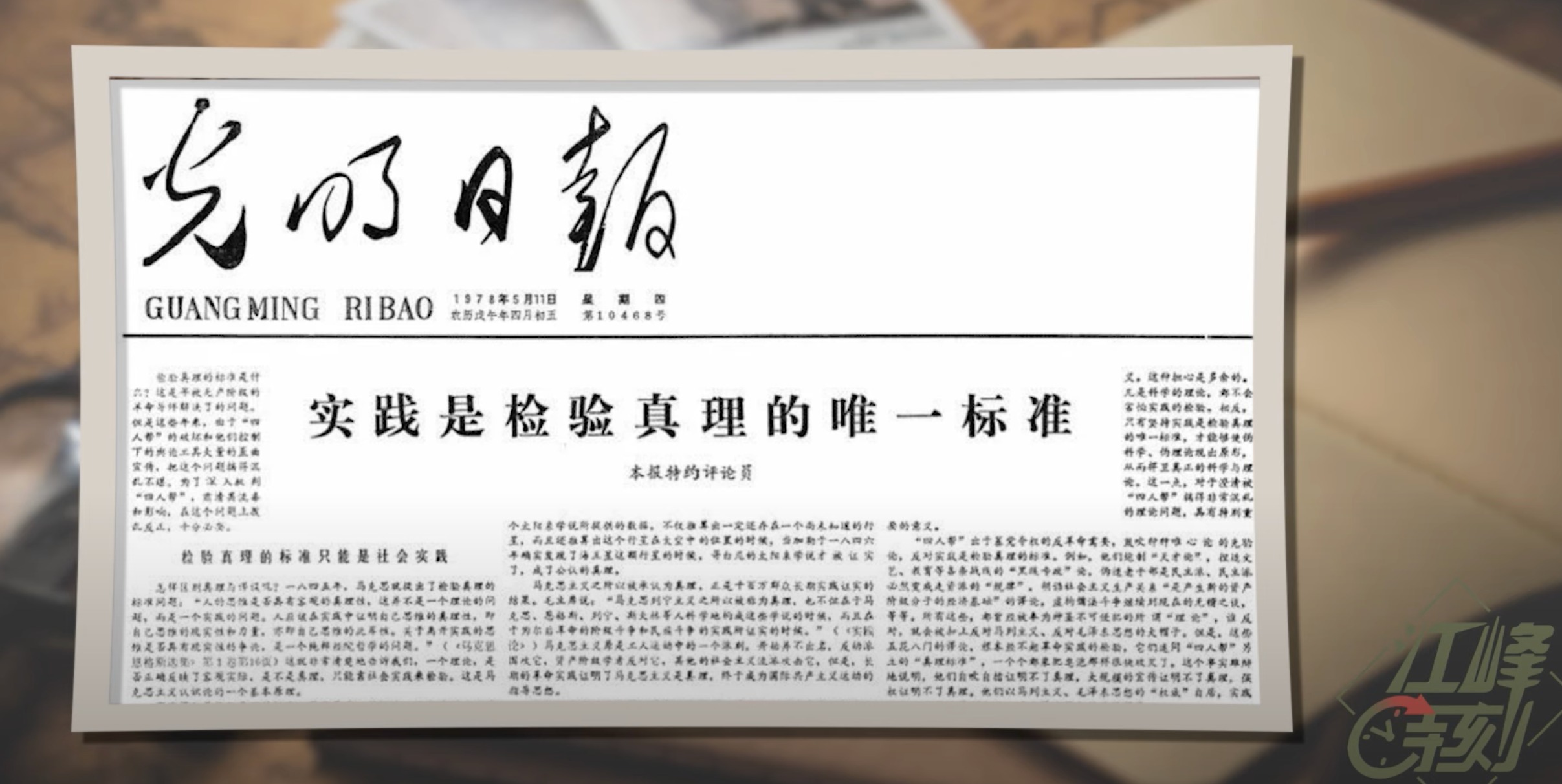
After Hua Guofeng came back, the trend in the whole party changed. At the end of the same year, the Third Plenary Session of the Eleventh Central Committee criticized the “two whatevers” idea, and Hua Guofeng had to explain it. Deng Xiaoping insisted: No need to explain, it all has something to do with you, Hua Guofeng, that’s what you want to do. Hua Guofeng had to resign first as prime minister, then as chairman of the CPC Central Committee and chairman of the Central Military Commission.
So could the same thing “coincidentally” happen again today?
Last time it was a “wise leader”, this time it was a “people leader”, and he also pursued a policy of restoring backwardness and continuing to torment the people. Will the high-level central authorities mobilize public opinion and the collective strength of the high-level central authorities in terms of public opinion and ideology when they go abroad to form the advantage of recall?
Another very interesting thing is that on the same front page of 9.13, the People’s Daily also reported that Li Keqiang held a meeting on stabilizing the economic market, using the expression “up and down linkage”, is it a call to rebel together? In the same page, there are reports of Li Zhanshu’s visit to Mongolia. Is it implying that Xi Jinping’s closest comrade-in-arms, the chairman of the National People’s Congress who helped Xi Jinping amend the constitution, is not in the country.
Combining all kinds of factors, you will feel that no matter how you interpret it, it is not excessive.
Xi Jinping’s visit this time is against the trend
In fact, excluding such speculation and analysis of the CCP’s dark officialdom, Xi Jinping’s trip is indeed bucking the trend. He wants to meet Putin, what will Putin tell him? It is nothing more than urging Xi Jinping to fulfill his promise to support Russia without a ceiling. Now Putin’s situation is very bad: senior generals were captured alive on the front line in Ukraine, more than 40,000 casualties have been confirmed, and Ukraine recaptured thousands of square kilometers of territory in the northern town and Donetsk within a week; more than 100 local parliamentarians in the country have jointly called for Putin resigned.
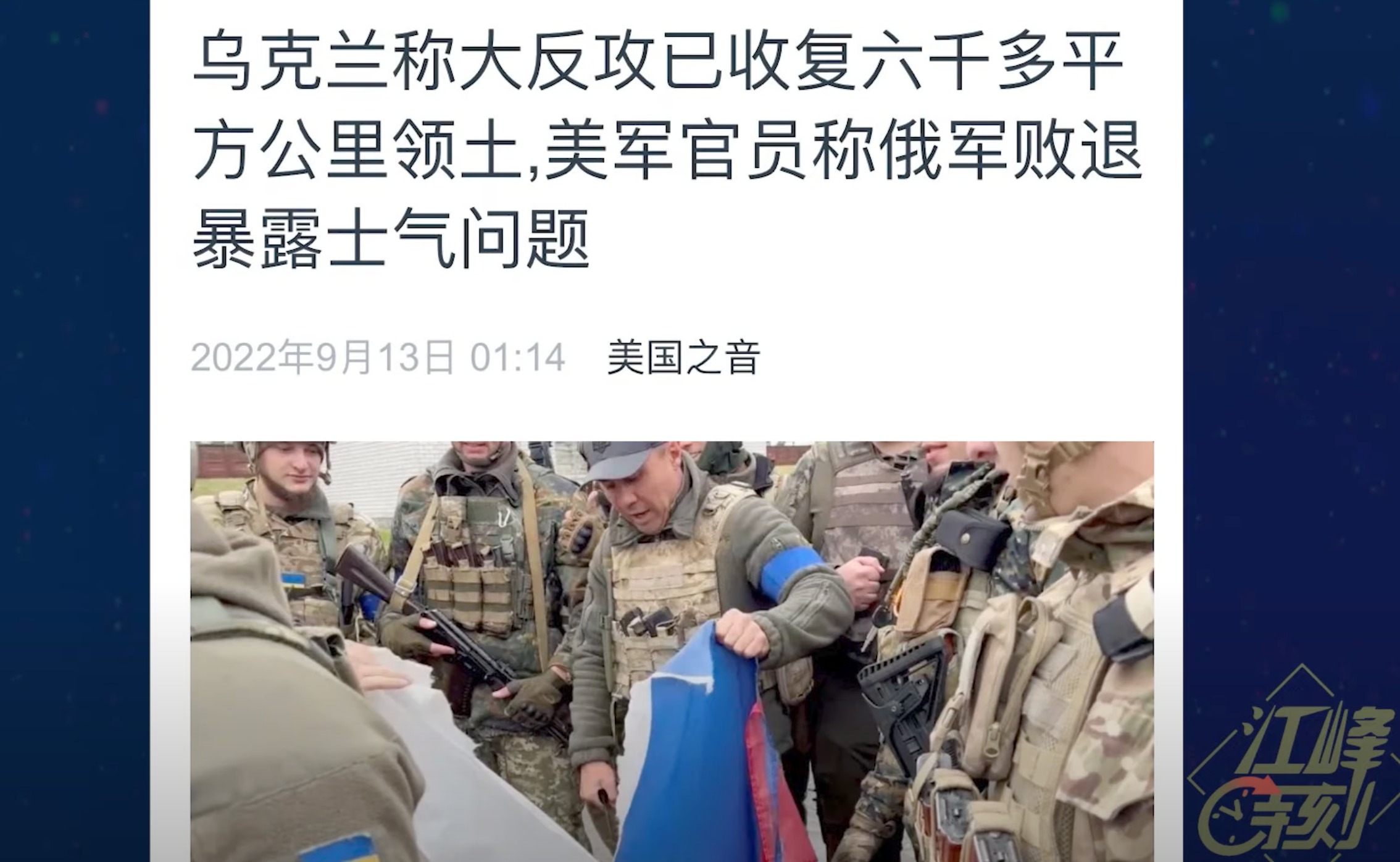
At this moment, Putin’s persecution of Xi Jinping will be more urgent than ever.
Can Xi Jinping live up to his promises to Putin? If it cannot be realized, the SCO will lose the sincerity of cooperation; if it is reluctantly realized, it will face greater countermeasures from the West. More importantly, the high-level party leaders are watching Putin’s whereabouts. Once Putin loses his political power, Xi Jinping will not only lose a temporary ally, but will encounter a backlash from Chinese society’s long-term support for Russia, as well as high-level party leaders. The use of strength to force, want him to step down.
“9.13”, even if it is not broken, it is inevitable to embark on the old path of the dictator’s demise.
Wednesday’s member program “Breakthrough Wednesday” tells you a story about Taiwan’s chips, why the chip industry is not a task that the CCP’s national system can accomplish, Taiwan has gone through several generations, and what kind of road has it finally become a national protection artifact.
Welcome to this full video.
More exclusive current affairs and original exciting series of Jiang Feng’s weekly programs are all on the “City of Hope” member website. Welcome to subscribe and watch.
